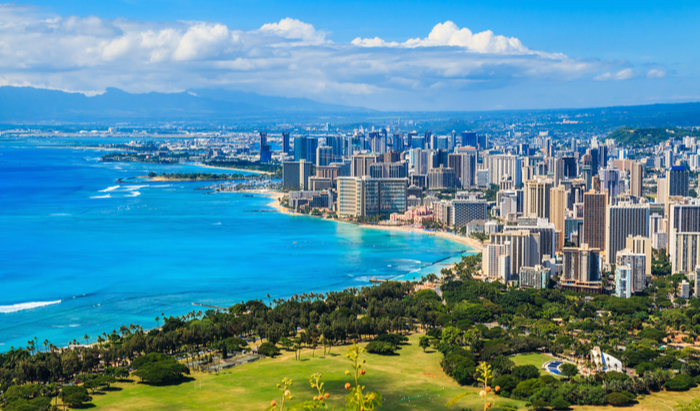The state of Hawaii has taken a tentative step closer to potentially operating its own lottery with a bill for the creation of a state lottery gaining approval by the Hawaii Senate Education Committee.
The Lottery Post has reported that Hawaii joins Alabama as the latest state to push a lottery bill to the Senate Judiciary to further the discussion of starting a lottery that could generate additional state revenue.
The bill details a plan to implement a lottery with a focus on funding public education.
Of all revenue generated, 40% will fund public school operations, university facilities and operations, and the general state fund, 45% would be paid out in prizes, and the remaining 15% would be used to operate the lottery.
While the proposal had an original launch date of January 1, 2022, Senate Education Committee Chairwoman Michelle Kidani amended the bill and pushed the date back to 2023 to allow more time for a task force and a would-be lottery commission to strategise and plan for the venture.
Kidani said: “We are looking at this very carefully. We don’t want this to be a fly-by-night operation. It will be vetted, it’ll have a five-member commission, the director will be appointed by the governor and confirmed by the Senate. And, of course, like anything else, if it’s not going to pan out, then we have to look at it again.”
Hawaiians in favour of a lottery may have to wait, as it’s unclear if a lottery bill would pass given the opposition to gambling in the state.
Besides Utah, the Aloha State is the only other state to ban all legalised forms of commercial gaming that operate on a ‘house’. ‘Social’ gambling is allowed as long as there is no overarching firm that is profiting from the games.
Honolulu Prosecuting Attorney Steve Alm is among those who strongly oppose a state lottery as he believes it risks ‘fuel[ing] excessive gambling problems’ while also profiting ‘from people of lower educations and lower socioeconomic standing’.
Alm wrote in testimony: “Despite the substantial hardship of steering Hawaii’s economic recovery in the coming years, from the first global pandemic seen in over 100 years, the Department strongly urges the Legislature not to give in to temptation to introduce deleterious — albeit lucrative — industries such as legalized gambling into Hawaii’s communities.”
Tom Yamachika, President of the Tax Foundation of Hawaii, agreed with Alm’s statements.
He said: “There are studies where researchers have concluded that lotteries have a reverse ‘Robin Hood’ effect, namely they take from the poor and give to the rich. And this is because, for a lot of people who are poor, they don’t see the way to get out of their situation except by winning the lottery.”
Others claim the extra funds produced by the lottery are necessary, especially in light of proposed budget cuts in response to the pandemic for the Department of Education of $270m over the next two years. Included in the cuts are potential ‘labour savings’, which could mean teacher furloughs.
Funds are urgently needed in other areas too, as Chief Financial Officer of the University of Hawaii, Kalbert Young, cited a backlog for maintenance projects that exceed $500m.
Senator Kidani hopes now is the right time for Hawaii to adopt a state lottery and that the public will support the idea.
She added: “I’m thinking, as we talk about gambling bills before, that maybe this will not be something that is as heavy as a casino but will have some substance to it being just a lottery.”



























